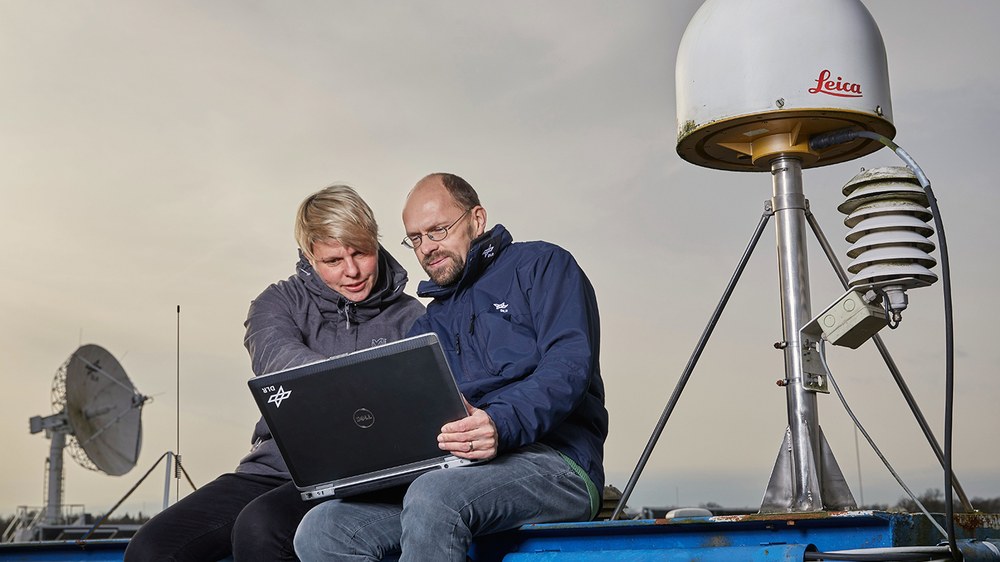EVNet - Experimentation and Verification Network
The Experimentation and Verification Network (EVnet) is a system of distributed receivers that can acquire, process and distribute GNSS and GNSS-related measurement data in near real time. It currently consists of 13 sensor stations distributed around the world and a central processing and control facility (CPCF) operated at DLR's Neustrelitz site.
EVnet supports the reception and distribution of GPS, GLONASS, GALILEO and EGNOS raw data. The recorded measurement data include pseudo-ranges, carrier phases, Doppler shifts, carrier-to-noise ratio and signal amplitude. All recorded data is stored in a database for long-term analysis.
EVNet was originally developed for surveying the ionosphere with high-rate receivers. So far, data from two complete solar cycles could be archived. The data also flows continuously into the situation pictures and forecasts of the "Ionopheric Monitoring and Prediction Center". Furthermore, they are used for the further development of ionospheric models and prediction methods. Furthermore, they play a central role in the evaluation of Galileo signals and other constellations. In this context, they are used to develop so-called "threat models", which describe deviations of the signals from their specifications that can lead to position errors. Threat models are essential for using Galileo in applications such as aircraft landing.

